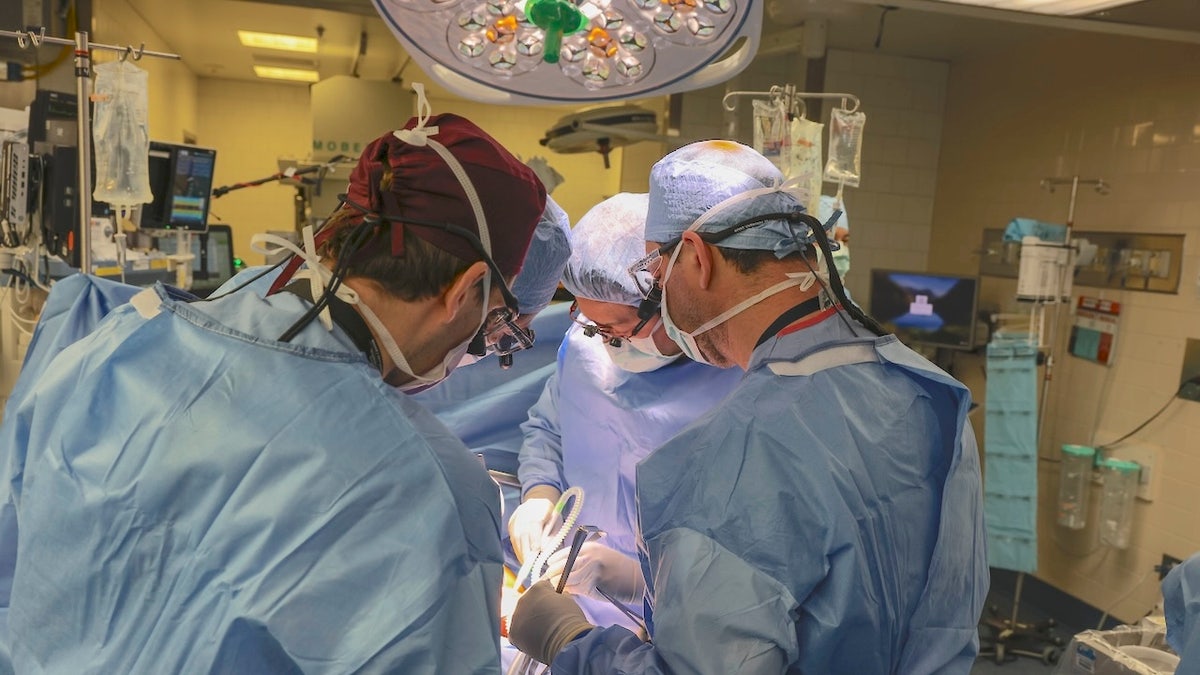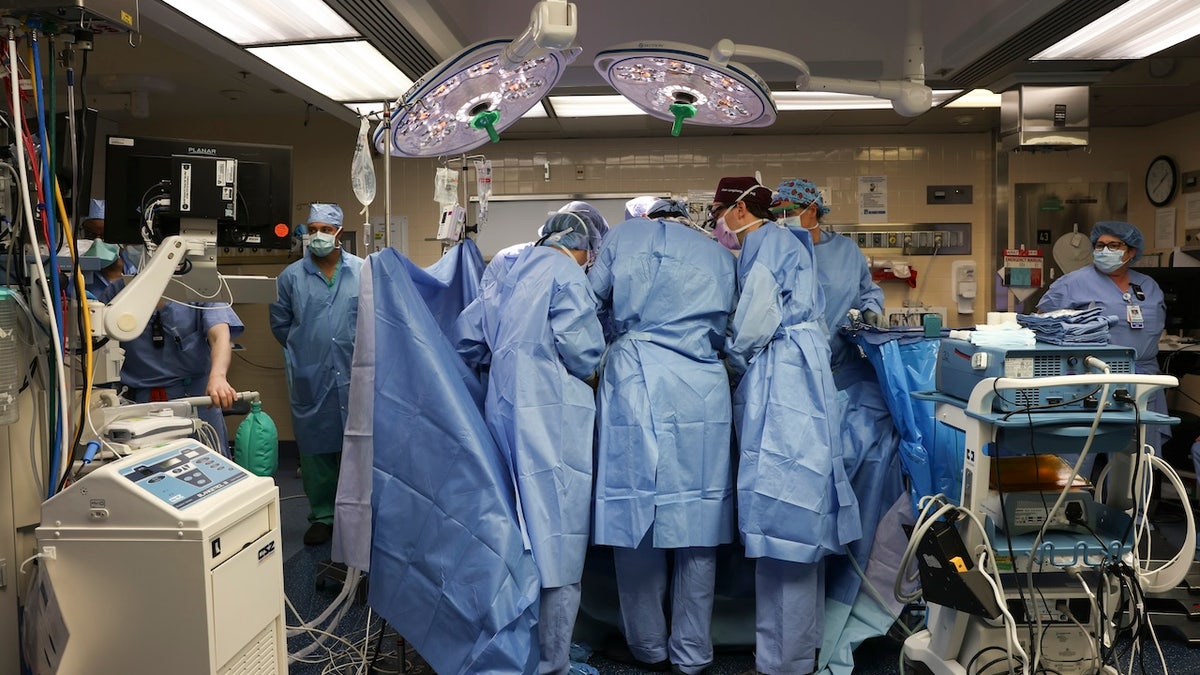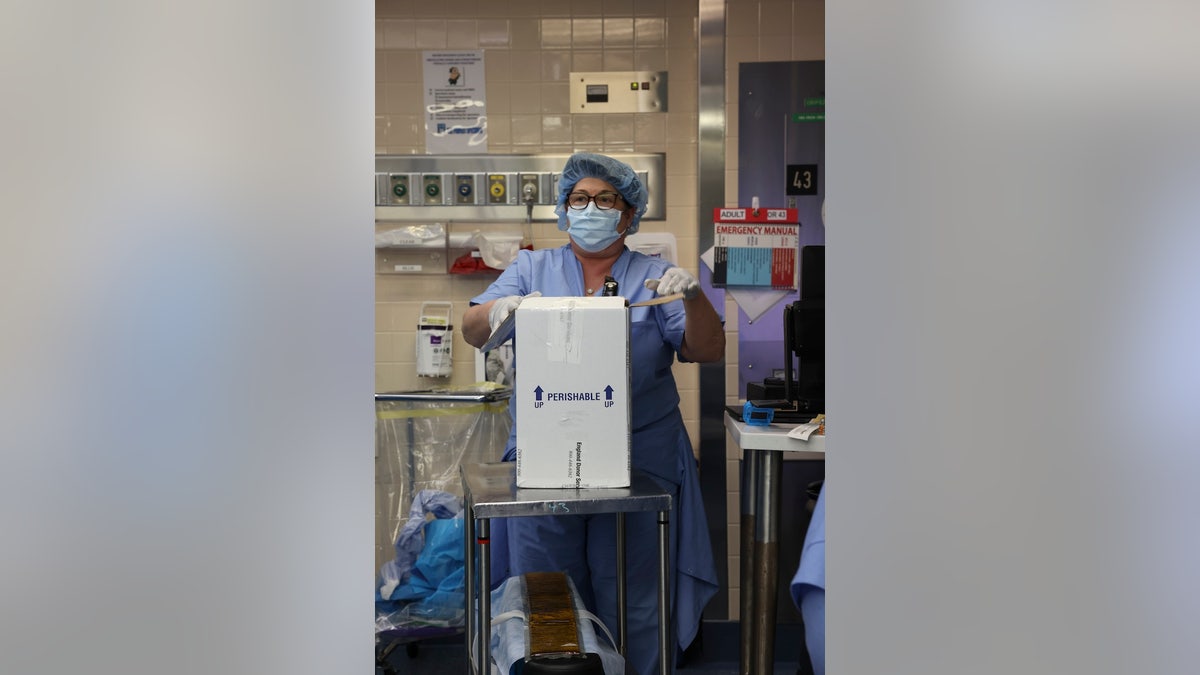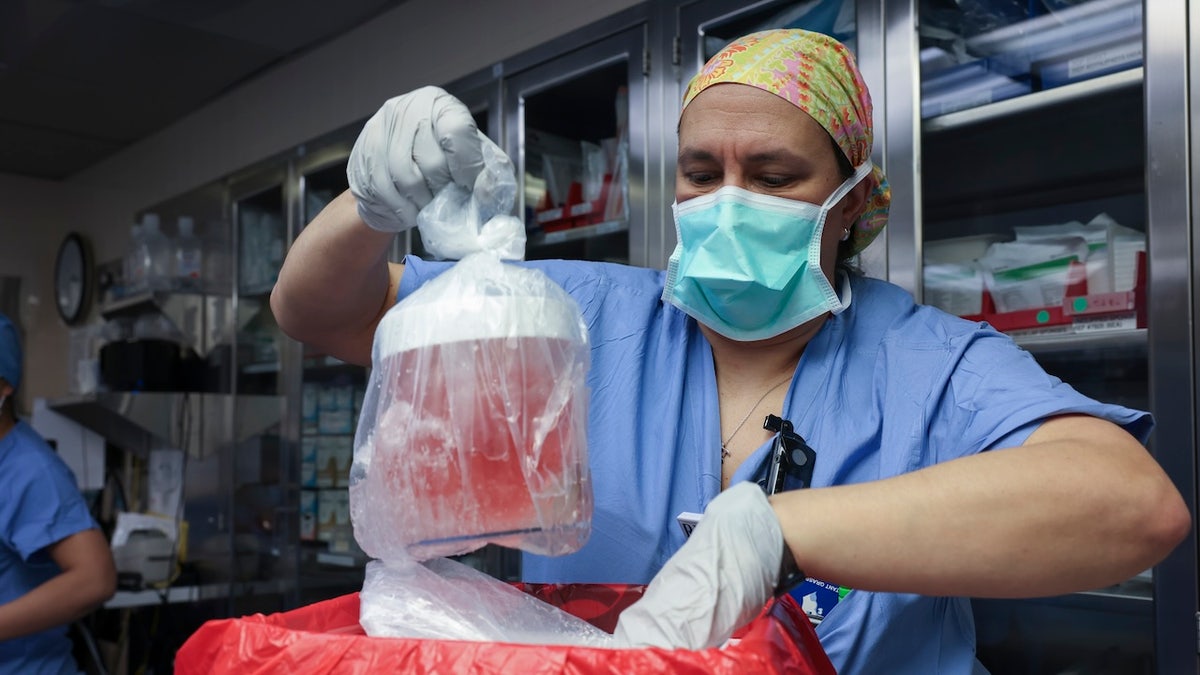Massachusetts man receives successful pig kidney transplant: ‘Uncharted territory’

[ad_1]
Surgeons at Massachusetts General Hospital (MGH) have successfully transplanted a pig kidney into a human patient, the hospital announced on Thursday.
The 62-year-old patient, Richard Slayman of Weymouth, Massachusetts, had end-stage kidney disease, according to a press release from the hospital.
After receiving his first kidney transplant from a human donor in 2017, Slayman’s organ began failing again in May 2023, when he went on dialysis.
PITTSBURGH BOY, 10, NEEDS SECOND LIVER TRANSPLANT TO SAVE HIS LIFE: ‘ONLY POSSIBLE THROUGH LOVE’
He received the pig kidney — which was genetically edited to make it more compatible with a human recipient and to eliminate the risk of infection.
Slayman is in recovery. He’s said to be doing well and is expected to return home soon.

Surgeons at Massachusetts General Hospital successfully transplanted a pig kidney into a human patient, the hospital announced on Thursday. (Massachusetts General Hospital)
“The success of this transplant is the culmination of efforts by thousands of scientists and physicians over several decades,” said Tatsuo Kawai, M.D., PhD, director of the Legorreta Center for Clinical Transplant Tolerance at Massachusetts General Hospital, in the release.
“We are privileged to have played a significant role in this milestone. Our hope is that this transplant approach will offer a lifeline to millions of patients worldwide who are suffering from kidney failure,” he also said.
ONE FAMILY DONATES FOUR KIDNEYS TO SAVE A NEW YORK MAN’S LIFE: ‘DEFIED ALL ODDS’
Slayman has been a patient at Mass General Transplant Center for 11 years.
In a statement, he said he has “the highest level of trust in the doctors, nurses and clinical staff who have cared for me.”
He also said, “I saw [the pig kidney transplant] as not only as a way to help me, but a way to provide hope for the thousands of people who need a transplant to survive.”

The pig kidney was genetically edited to make it more compatible with a human recipient and to eliminate the risk of infection. (Massachusetts General Hospital)
“I want to thank everyone at MGH who has cared for me, especially Dr. [Winifred] Williams, Dr. Kawai, the surgeon who performed my first kidney transplant, and now this one, and Dr. [Leonardo] Riella, who has orchestrated the logistics behind this new transplant.”
He said further, “They have supported me during every step of the journey, and I have faith they will continue to do so.”
ARKANSAS MILITARY VETERAN RECEIVES WORLD’S FIRST WHOLE-EYE AND PARTIAL-FACE TRANSPLANT
Joren C. Madsen, M.D., director of the MGH Transplant Center, called Slayman the “real hero.”
“The success of this pioneering surgery, once deemed unimaginable, would not have been possible without his courage and willingness to embark on a journey into uncharted medical territory,” Madsen said in a statement.

The genetically modified pig kidney is shown as it’s transported to surgery. Kidneys top the list of the most commonly needed organs for transplant. (Massachusetts General Hospital)
“As the global medical community celebrates this monumental achievement, Mr. Slayman becomes a beacon of hope for countless individuals suffering from end-stage renal disease and opens a new frontier in organ transplantation.”
‘Historic milestone’
The successful surgery marks a “historic milestone” in xenotransplantation, which is the transplant of organs across species, the hospital noted.
This type of procedure could potentially provide an alternative solution to the global organ shortage, the release stated.
CLICK HERE TO SIGN UP FOR OUR HEALTH NEWSLETTER
“An abundant supply of organs resulting from this technological advance may go far to finally achieve health equity and offer the best solution to kidney failure – a well-functioning kidney – to all patients in need,” said Dr. Winfred Williams, Slayman’s nephrologist.

The successful surgery marks a “historic milestone” in xenotransplantation, which is the transplant of organs across species, the hospital noted. (Massachusetts General Hospital)
More than 100,000 people in the U.S. are currently on waiting lists for organ transplants, and 17 of those die each day, according to the United Network for Organ Sharing (UNOS).
At MGH alone, more than 1,400 patients are currently on the waiting list for a kidney transplant.
CLICK HERE TO GET THE FOX NEWS APP
Kidneys top the list of the most commonly needed organs, as end-stage kidney disease is expected to increase by anywhere from 29% to 69% by 2030.
MGH previously performed the world’s first human organ transplant, of a kidney, at Brigham and Women’s Hospital in 1954.
Fox News Digital reached out to MGH and additional physicians requesting comment.
For more Health articles, visit www.foxnews.com/health.
[ad_2]